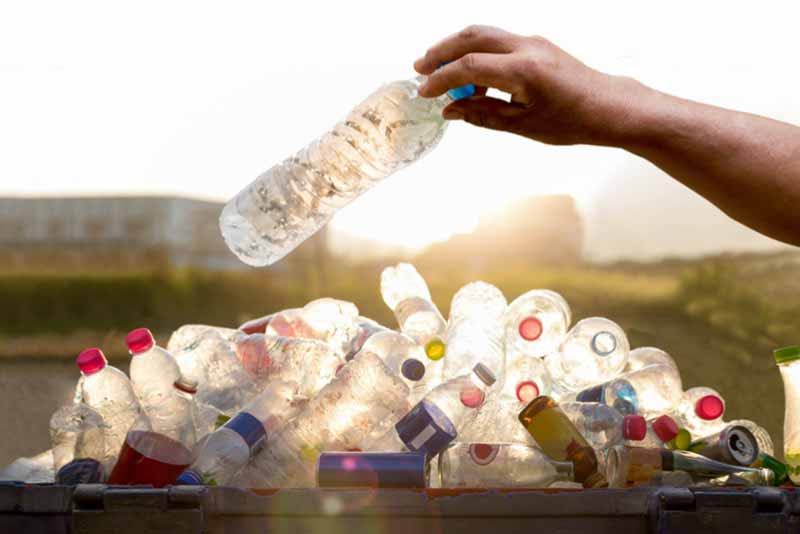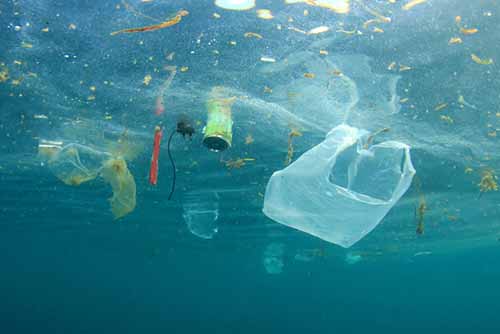Britain’s Plastic Waste Journey: Where Your Plastic Ends Up

21st century Britain has a plastic addiction. Cheap to make and durable, plastic is incredibly versatile but, once it has served its purpose, many plastic products are simply thrown away after just one use. This disposable plastic economy has a huge environmental impact and the planet has already started to pay the price.
The overwhelming quantity of plastic waste produced
Fully synthetic plastic was first invented a century ago in 1907 and has been mass produced for the last 70 years. In that time, 6.3 billion tonnes of plastic has been thrown away with just 600 million tonnes of it recycled.[i]
The UK alone uses around five million tonnes of plastic each year; nearly half of which is packaging.[ii]
However, plastic takes as much as 500 years to decompose which means even the very first plastic products produced and disposed of continue to blight our planet today. The worst offenders are coffee pods, nappies and plastic toothbrushes which take 500 years to decompose while the lifecycle of plastic water bottles and plastic cups is around 450 years. Plastic straws take 200 years to break down. Other offenders are plastic bags and coffee cups which take between 20-30 years to decompose.[iii]
While as a consumer or a business, it can be easy not to think about what happens to your plastic waste once it’s thrown away, our planet needs us to take action.
Throwing plastic in the bin is only the start of the journey
The good news is that plastic recycling has significantly improved in recent years. In 2020, the UK recycled nearly 380,000 tonnes of plastic bottles compared to just 13,000 in the year 2000.[iv]
However, as a nation we are still not doing enough. Only 35% of all plastic is recycled compared with 40% sent to energy recovery operations and, worryingly, more than 23% is still being sent to landfill.[v] Without real change, the use of plastic will continue to place a burden that will outlive us by hundreds of years.
The landfill problem
Once thrown away, plastic does not decompose like organic materials. It’s broken down by a process called photodegradation where UV radiation (from the sun) breaks it into small pieces over time. As landfill is layered with waste and soil, the lack of sunlight draws out the process even further. Landfill has a terrible effect on the environment, releasing toxins and greenhouse gasses such as methane that damages the planet and accelerates climate change. By their nature, they contribute to air pollution, pollute groundwater sources, affect the fertility of soil, have an impact on biodiversity and attract vermin. And there is limited capacity for landfill remaining. However, another problem caused by landfill is that it doesn’t always contain waste.
Landfill sites have a terrible effect on the environment. Even organic materials do not fare well in them because they release methane as they decompose, which is a powerful greenhouse gas that damages our planet by contributing
to global warming.
Landfill sites also:
- Contribute to air pollution
- Pollute groundwater sources
- Affect the fertility of the soil
- Have an impact on biodiversity
- Attract vermin
In short, they are not the best way to deal with waste. But there is another problem with plastics; sometimes they don’t stay in landfill sites at all, and they find their way into our oceans.

From landfill to the ocean
Eight million tonnes of plastic enters the sea each year. One of the major contributors of ocean plastic pollution is from the landfill waste cycle. Rubbish is blown from waste bins and landfill sites into rivers and sewers, finding its way into the sea. Plastic is fatal for the ocean; endangering all kinds of sea life such as turtles, dolphins, fish and seabirds. In 2019, a whale was found washed up on a Scottish beach with 100kg of plastic in its stomach. And even if it does break down in the ocean, it doesn’t disappear. Instead, it turns into tiny pieces called microplastics which cause more damage to marine animals as well as entering the food chain where it can impact human health.
Our oceans are full of particles of microscopic plastic, and this is an issue that has been in reported in the news a lot recently. For example, The Independent reports how eight million tonnes of plastic finds its way into the oceans each year and that by 2050, there will be more plastic than fish in our oceans.
This is dangerous because sea animals eat the debris. These are also absorbed by fish that we, in turn, then eat.
This problem mainly comes from waste that is not properly managed. In fact in many parts of the world, landfill sites overflow into waterways. This is how a remote island like Henderson Island has 19 tonnes of rubbish littering
its beaches, as reported in the National Geographic.
Reduce before reuse
Compare this to when plastic is recycled and it’s a very different story. When you leave your plastic waste to be collected for recycling, it is taken to a waste management centre. Here, it is separated into Type 1 and Type 2 plastics. It is then washed, made into bales, shredded down, washed again and dried before it can be reused again to make new products.
The quickest way to reduce the impact of plastic waste is to eliminate its use wherever possible. Keep waste to a minimum and make the switch to more sustainable, reusable products or plastic-free alternatives.
Where you can’t, dispose of plastic waste of in the most responsible and environmentally-friendly way possible by recycling; giving it a life after life and diverting it from landfill.
How to effectively recycle plastic
A waste management strategy is essential for any organisation. This allows you to properly identify waste streams and the most effective solutions which will work for you over the long term. This may include processes and equipment to segregate waste streams such as plastic, cardboard, metal and glass. Waste compactors and balers will enable you to reduce the volume of plastic and cardboard waste for easy storage, handling and disposal while working with a waste management company will ensure it is promptly collected and disposed of responsibly. There may even be the opportunity to turn your waste into a new revenue stream by selling it to recycling companies.
Difficulties with Recycling
Clearly, recycling is far better for the environment because it prevents plastics from causing pollution or filling up landfill sites. It also uses less energy to recycle rather than create new plastic. However, it does still have
its difficulties.
The big problem is that plastic is often cheaper to make new rather than recycle, so there is less incentive for to recycle it. There are also difficulties when it comes to sorting it, which is a complex process. As a result, businesses
and individuals still recycle a lot less plastic than they should.
More information
With more than 35 years’ experience, phs Wastekit provides waste management solutions to organisations across the UK. Our services include supplying quality compactors, balers and waste handling accessories for rent or purchase as well as offering servicing, maintenance, waste removal services and partnerships with recycling companies. phs Wastekit also offers a free Waste Saving Audit and free trials of balers and compactors with no obligation.
For more details, talk to us today by calling 0800 169 3534 or emailing wastekitsales@phs.co.uk